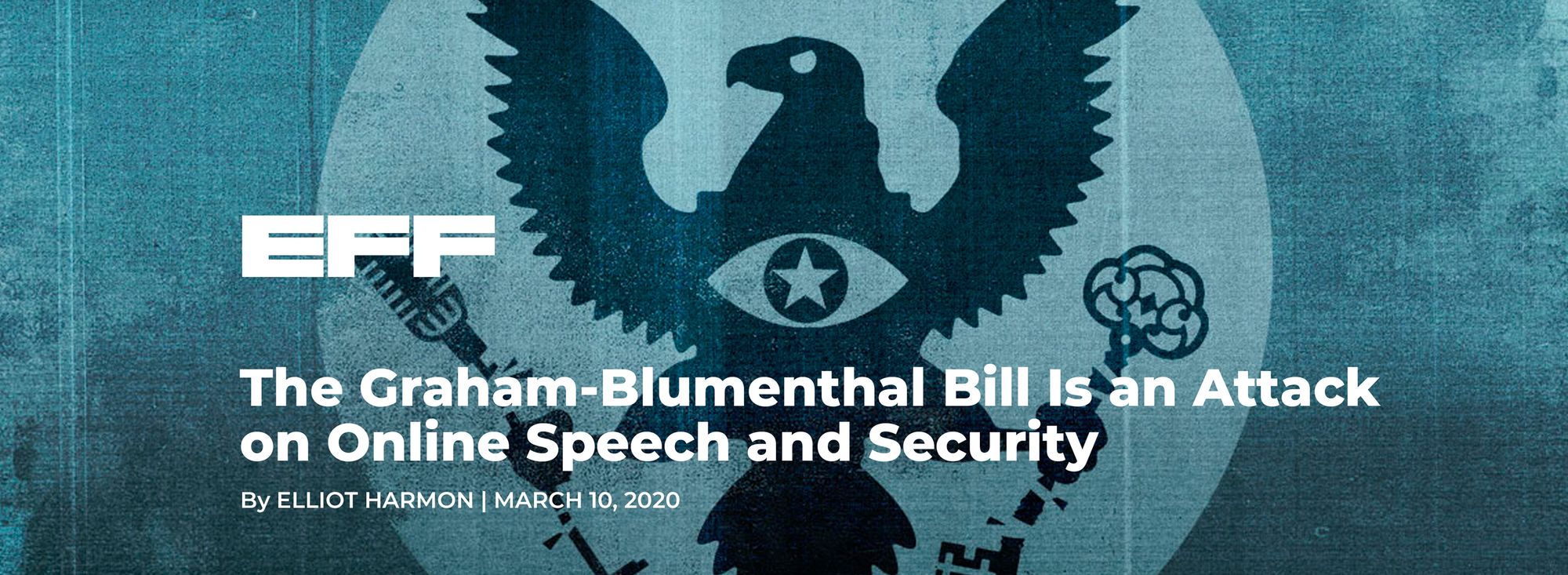First they came for the CDA230
Two years ago, FOSTA/SESTA was a bill package which vastly expanded the criminal and civil liability for internet platforms hosting information related to the sex industry. Within twenty minutes of the bill’s passage through the Senate, websites began to close en masse, leaving sex workers – once accustomed to being able to advertise online for clients – without a workplace just days before rent was due.
Two years since FOSTA/SESTA’s passage, the landscape of the sex industry online looks quite different. Many of the sites that sex workers utilized have either been lost, changed hands, or gotten aggressive about removing sex workers from their platforms. Community research has pointed to the loss of income, housing, clients, industry norms and a general destabilization that many had come to rely on. And in those two years, not a single independent lawsuit has been filed using the new law.
[RELATED: Global Implications Of FOSTA]
But two short years later, Congress (and in particular, Connecticut Senator Richard Blumenthal), seems to have missed the memo that regulating the internet through expanded liability is something that often has unintended consequences. On March 5, 2020, Sen. Blumenthal and Sen. Lindsay Graham introduced the Eliminating Abusive and Rampant Neglect of Interactive Technologies Act, or the EARN IT Act of 2020.
Looking to further regulation of the internet, ostensibly to address the issue of minors and sex, this bill would establish a commission to be headed by Attorney General William Barr, tasked with creating “best practices” against which internet companies would have to certify in order to keep their liability for user-generated content relatively low. Similar to FOSTA/SESTA, EARN IT will rely on civil liability (or the increased chance to face lawsuits) to strong-arm companies into becoming the final arbiters around what content can and cannot exist on their site. Or to instead face a torrent of potential litigation, that would unravel many small businesses forever.
A wolf decked out in save-the-children clothing
Technology experts are pointing out, though, that this is not just about the legal liabilities of various platforms, but a broader (albeit covert) attempt to kill end-to-end encryption – the kind of privacy used by communication apps like Signal or WhatsApp, and email platforms like ProtonMail. The Electronic Frontier Foundation (EFF), explains in a recent post, “[y]ou can’t have an Internet where messages are screened en masse, and also have end-to-end encryption, any more than you can create backdoors that can only be used by the good guys. The two are mutually exclusive.”

EFF's Statement on the EARN IT Act of 2020
Attorney General Barr, who would lead the commission and would have veto power over any of the recommendations produced by that commission, has long railed against encryption, bolstering advocates’ fears. At a recent conference in New York, AG Barr described encryption as allowing “criminals to operate with impunity, hiding their activities under an impenetrable cloak of secrecy… While encryption protects against cyber attacks, deploying it in warrant-proof form jeopardizes public safety more generally.”
And all of this is happening in a moment where a global pandemic is forcing everyone, especially sex workers, to rely even more heavily on the internet than ever before, just to be able to make ends meet.
Sex Workers knew THEN, and they know NOW
NYC-based Pro Domme and a co-founder of the Hacking//Hustling collective, Danielle Blunt sees the similarities clearly, including the potential impact: “Like FOSTA/SESTA, the EARN IT Act amends CDA230 and increases the liability of platforms, encouraging them to further censor and surveil their users’ 'private’ correspondence… If signed into law, sex workers will be de-platformed at a higher rate [than average users] and pushed further underground into less safe work environments. Sex workers could be put in dangerous situations due to a fear of open negotiations online.”
Blunt also recognizes how widespread the impact of the bill could be. “This legislation would be used to limit and chill speech about sex work, abortion, harm reduction, and LGBTQIA issues.”
GET INVOLVED:
In response to the proposed bill, sex workers rights organizers are taking the tools and lessons learned during the fight against FOSTA/SESTA to once again begin education through social media. On Thursday, April 2, 2020 Hacking//Hustling and other organizers will be asking as many people as possible to tweet about what would happen if the new bill is passed. Participants are also being asked to email their Senators to let them know that the community does not want to see a SESTA/FOSTA 2.0 using the hashtag #FuckEARNIT.
The collective has already been pulling together a social media toolkit for the day. Grab some messaging, and join us on Twitter and Instagram from 1-2PM EST on April 2, 2020.

The Hacking//Hustling Social Media Toolkit for #FuckEARNIT
“Earn It (S. 3398)” is a clear extension and expansion of #SESTA #FOSTA; even more aggressively geared toward surveillance and government anti-encryption crackdowns. Remember how hard we fought before? We need that level of commitment, and more, again! #FuckEarnIt
Red, an organizer with the Hacking//Hustling collective, is one of those who has seen this (the response to the EARN IT act) as simply the next iteration of a long history of battling state surveillance. "Many of us involved with the (now sunsetted) collective Survivors Against SESTA, have [now] taken up this work against EARN IT. We see this newly proposed bill as a part of the dangerous legacy of SESTA/FOSTA, the PATRIOT Act and other insidious state surveillance efforts; bent on censorship and punishment."
Red also notes the impetus to fight comes from a place, not just of concern about rights, but lives. "Our central demand while fighting SESTA/FOSTA was #LetUsSurvive and came from a place of urgent fear around how our communities would be impacted. We were right, we were deadly right."
[RELATED: Against FOSTA/SESTA: One Canary's Cry From Inside the Coal Mine]
A waiting game in the Senate
The current moment, though, is unsurprisingly focused on other places. Having just voted on the largest stimulus package in American history, the Senate has been focused on keeping the country together and afloat during the COVID-19 pandemic. With so much going on, it may seen absurd to end some of the major features of internet privacy and freedom which has allowed interactive computer services to thrive. Advocates, though, have already voiced concerns that as soon as the Senate returns, EARN IT is going to make another big lurch forward, and without public debate.
But not everyone in Congress is supportive of these efforts. Sen. Ron Wyden, one of two lone “no” votes on the Senate’s SESTA bill, had strong words about EARN IT. In a statement Wyden called the legislation “a transparent and deeply cynical effort by a few well-connected corporations and the Trump administration to use child sexual abuse to their political advantage, the impact to free speech and the security and privacy of every single American be damned.”

Senator Wyden's op-ed: "Don’t give politicians a say in what people can say on the internet"
EFF has joined with groups like the ACLU and Center for Democracy and Technology to push back against the bill in the Senate, pointing to the bill as a disguised attack on privacy, free speech, and a bill which would deal a crippling blow to the innovation of new platforms.
It doesn't even do what it says on the tin
One of the parts which will inevitably get the least amount of coverage is that EARN IT is not just going to have negative unintended consequences for many marginalized communities, it will also never achieve its stated purpose of addressing child sexual violence.
Sen. Wyden again is quick to point out that the power to go after people perpetrating violence exists already. “While Section 230 does nothing to stop the federal government from prosecuting crimes, these senators claim that making it easier to sue websites is somehow going to stop a pedophile.”
In other words, nothing is stopping federal authorities from investigating and prosecuting child sexual violence online under the laws that exist currently. Creating new ones – which will cause potentially immense collateral damage – will do nothing to further that end. Much the same thing can be said about FOSTA/SESTA's unequivocal failure to curb any sex trafficking.
Blunt asks us to come back to where the focus should be in bills like this – not on platforms, but the people who experience harm. “Survivors and people vulnerable to labor exploitation need resources and labor rights. If the money that was going into creating a commission of 19 random people to do away with encryption went to survivors instead, it would actually help people.”

